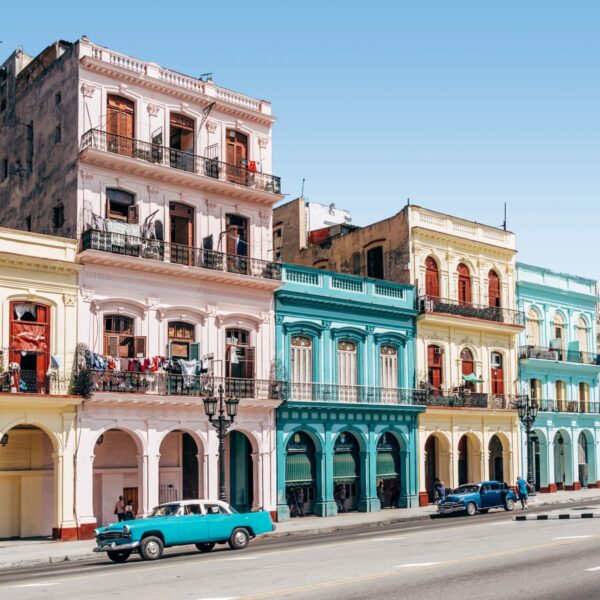

The US government first imposed economic sanctions against Cuba on February 7th, 1962, in response to the Cuban government’s political alignment with the Soviet Union and its ongoing efforts to undermine democratic processes. Implemented by President Kennedy under the terms of the Trading with the Enemy Act 1917, the Cuban Assets Control Regulations came into effect on July 8th, 1963. They represented a full trade embargo prohibiting all imports from and exports between the United States and Cuba.
This comprehensive embargo has served as the backbone of the US Cuba sanctions regime since the 1960s, applicable to any individual or entity subject to US jurisdiction. US-Cuba relations began to thaw in the 21st century, leading to an easing of sanctions under President Barack Obama. However, many of the moves to ease restrictions were reversed under the Trump administration.
Cuba sanctions: Enforcement
The US Cuba sanctions regulations are maintained by the Treasury Department’s Office of Foreign Assets Control (OFAC). Under the regulations, US persons must screen customers from Cuba or who have connections with Cuba against the OFAC Specially Designated Nationals And Blocked Persons (SDN) list to determine whether sanctions restrictions are applicable. In addition to trade and travel prohibitions, US Cuba sanctions impose reporting and recording-keeping obligations on US persons, including maintaining records of dealings with Cuba for 5 years and complying with OFAC requests for records relating to activity with Cuba.
Breaches of Cuban sanctions can result in criminal and financial penalties, including a 10-year prison sentence, a $1,000,000 corporate fine, and a $250,000 individual fine. A civil penalty of up to $65,000 for each violation may also be imposed.
Impact of the Obama administration (2009-2017)
In 2014, the Obama administration eased the US’ Cuba sanctions regime, amending the Cuban Assets Control Regulations to:
- Allow certain persons subject to US jurisdiction to open bank accounts in Cuba and to conduct certain financial transactions with Cuba, such as remittances and fund transfers.
- Allow US-based financial institutions to open correspondent accounts at Cuban financial institutions in order to facilitate transaction processing.
- Allow financial institutions to take advantage of reduced restrictions on remittances and other transfers to introduce transfer services without requiring a license from OFAC.
Cuba sanctions: Impact of the Trump administration (2017-2020)
The adjustments to the Cuba sanctions regime did not signify a complete reversal of the US embargo on Cuba and were unpopular with many US politicians. In 2017, President Trump reinstated many of the previously relaxed restrictions, including restrictions on travel and certain business relationships. However, the Trump administration continued to amend the Cuban Assets Control Regulations in order to:
- Remove the requirement for US banks to obtain authorizations for “U-Turn” transactions involving Cuba. U-Turn transactions originate and terminate outside the US and involve both senders and receivers who are not subject to US jurisdiction.
- Grant permission for family remittances to one Cuban family member per quarter, up to a value of $1,000. The family remittance rule does not apply to close relatives of Cuban politically exposed persons.
- Grant permission for remittances to certain individuals and independent non-governmental organizations in Cuba, such as civil society groups, humanitarian projects, and any other projects that aim to benefit Cuba directly.
Impact of the Biden administration
Despite adjustments to the Cuba sanctions regime, it is important to remember that the US-Cuba embargo remains in place and that most transactions between the US and Cuba are prohibited. With that in mind, despite serving under President Obama, President Biden has indicated that he will take a hard line on Cuba sanctions and continue to use economic sanctions to apply pressure on the Cuban government.
In July 2021, in response to a crackdown on pro-democracy protests in Cuba, the US imposed new sanctions against Cuba’s Defence Minister and against a special forces unit accused of human rights abuses. Those actions were followed by sanctions on Cuba’s national police force and against two of its leading officers.
President Biden has said that more measures will be forthcoming – a strategy that makes the prospect of sanctions easing unlikely in the foreseeable future.
Screen and monitor Cuba sanctions
Our solutions can help you search, screen and monitor sanctioned individuals quickly and efficiently.
Get Started NowOriginally published 12 August 2014, updated 10 June 2024
Disclaimer: This is for general information only. The information presented does not constitute legal advice. ComplyAdvantage accepts no responsibility for any information contained herein and disclaims and excludes any liability in respect of the contents or for action taken based on this information.
Copyright © 2026 IVXS UK Limited (trading as ComplyAdvantage).
